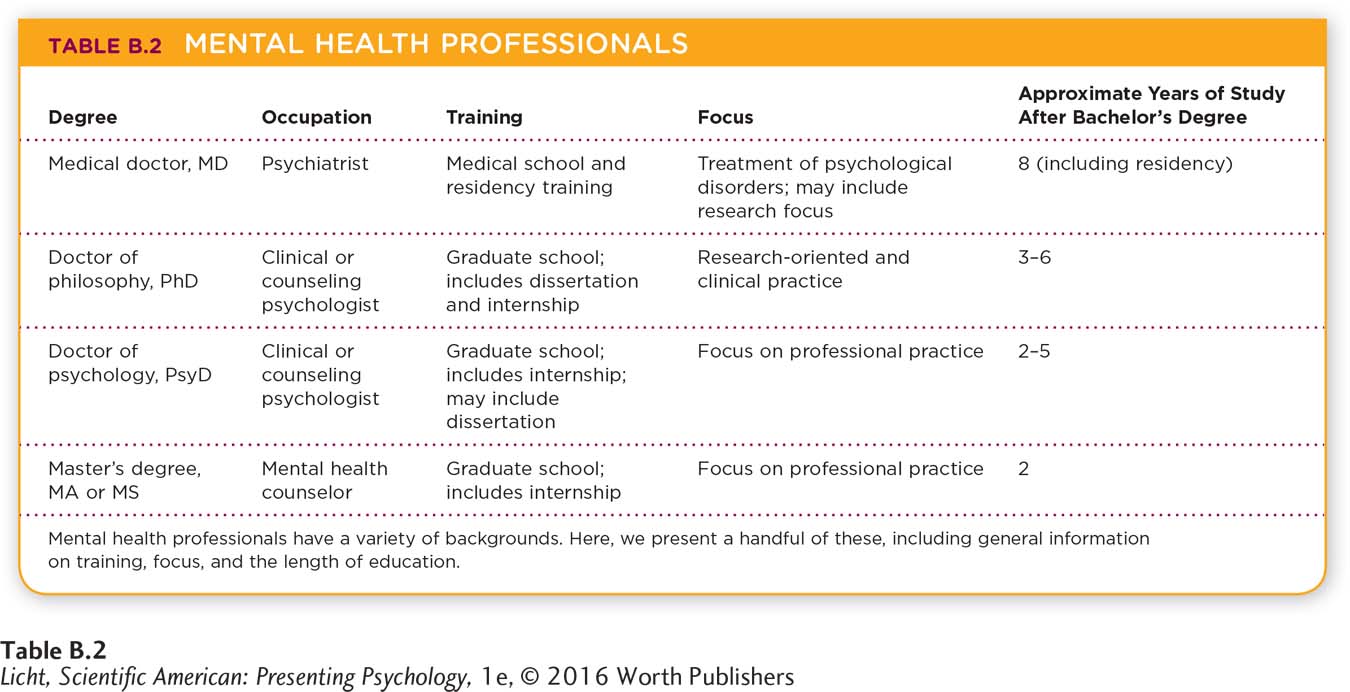What Can I Do with a Master’s Degree in Psychology?
Choosing to pursue a graduate degree in psychology requires a great deal of research. There are many types of degrees, and a multitude of colleges and universities that offer them. The American Psychological Association (APA) publishes a valuable resource for students thinking about this next step, Graduate Study in Psychology (2015). This guide, which is routinely updated, includes information on approximately 600 psychology graduate programs offered in the United States and Canada. In it you will find a program’s application deadlines, tuition costs, graduate employment data, and other useful information.
A master’s degree in psychology is flexible and can prepare you to work in areas outside the field of psychology, including government, health care, business, marketing, and education. Many master’s-
Table B.2 provides some general information about the types of degrees and training required of various mental health professions. In most states, master’s-
